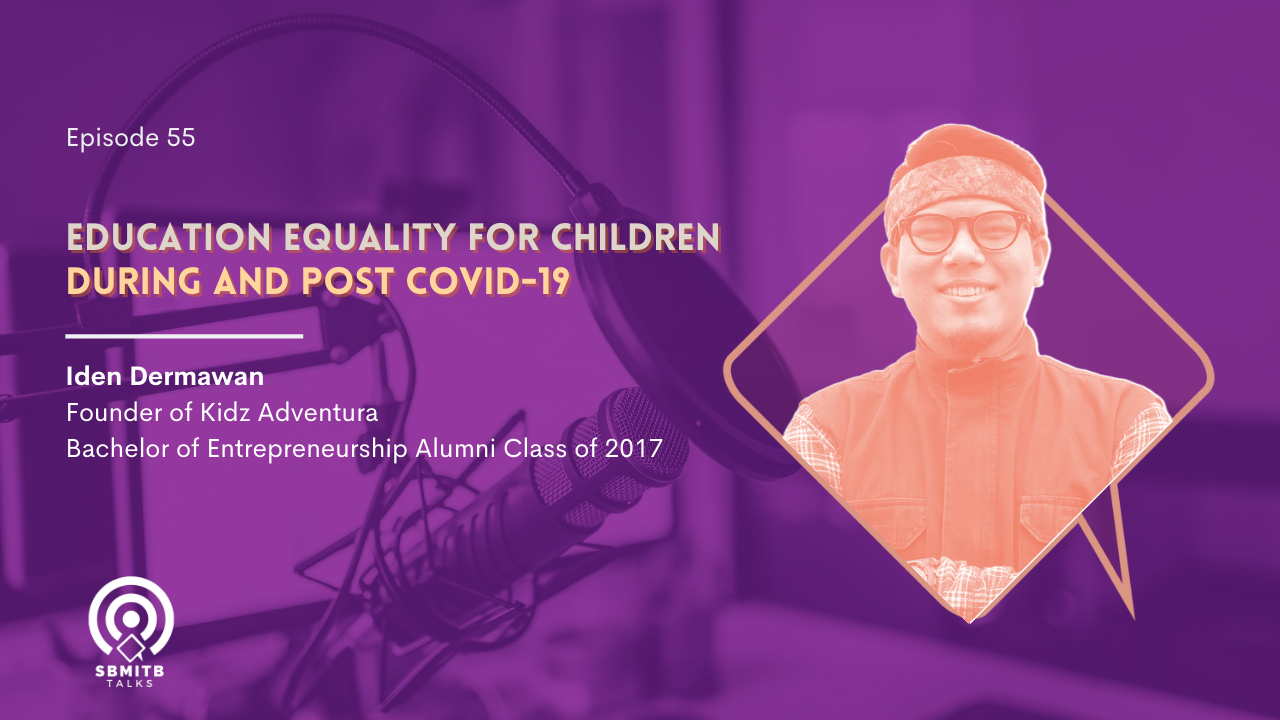It is undeniable that the impact of the COVID-19 pandemic has been felt by almost all sectors, one of the most affected is the education sector. Children's learning methods, the way teachers teach, to the form of giving materials and assignments to students must be done online. Children lose the opportunity to interact directly with their peers and teachers. There are also educational disparities that occur in various places due to unequal access to education. However, it turns out that there is a more severe impact, namely regarding the mentality of children. In Episode 55, SBMITB Talks will discuss the impact of the pandemic and post-pandemic in the education sector for children with Kak Iden Dermawan, the founder of Kidz Adventura who has also had an interest in related fields for a long time.
Then what impact should be the main concern and how do we handle it?
Mental, Character, and Skill!
The worst impact is the decline in a child’s mentality due to online learning. It is undeniable that many parents help their children with their work, making the child reluctant to try. When the pandemic ends, of course, this habit will have an impact on children’s lack of desire to work hard to achieve something they want.
In addition, it seems that cheating is now becoming more commonplace because the supervision of the teacher is very limited, children can access answers via the internet or books, and even ask their friends. If this is done repeatedly, it will form a habit that is difficult to break when learning has also returned to face-to-face learning. Teachers also have minimal access to control this. As a result, children’s characters will be formed who think that everything can be done to get something they want
Social Empathy, Confidence, and Character Recognition
Activities carried out online reduce the quality of social interaction between children and their peers. Therefore, children’s social empathy and self-confidence are lacking because they lack the opportunity to be able to speak in front of their friends and collaborate in a team. As a result, social empathy will be blunted and self-confidence is reduced because the child is not able to recognize his own character.
Golden Triangle – Students, Parents and Teachers
Important elements that are very influential in handling this problem are parents, teachers, and students themselves. Parents are the closest people to children during the learning period at home and the teacher plays a role during the learning schedule. Both need to support each other in the development of children, not trying to only make it easier for their children, but how to make their children really develop.




